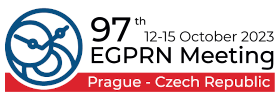A new data collection project for studies of the process of diagnosis in primary care: collecting data on reasons for encounter and diagnoses in episodes of care in Europe.
Jean Karl Soler, Nicola Buono, Heidrun Ligner, Thomas Frese, Brendan Delaney, Christos Lionis
Keywords: reasons for encounter; episode of care; ICPC; diagnostic research; decision support; electronic medical records
Background:
The Dutch Transition Project has made a unique contribution to primary care research in collecting data on reasons for encounter (RfEs, including symptoms and complaints) and diagnoses in an episode of care (EoC) model, allowing the study of incidence and prevalence of both, and especially relationships between RfEs and episode titles to research the process of diagnosis. A new collaboration within EGPRN promises to recreate and expand this project now.
Research questions:
To develop and implement a data collection tool which interfaces with existing electronic medical record (EMR) systems, which can alternatively stand-alone as a basic EMR
To collect and analyse data on RfEs, interventions and diagnoses collected with ICPC in an EoC model, to empirically inform the epidemiology of primary care
To make such data available for research into the process of diagnosis and the development of diagnostic decision support systems
Method:
The steps to develop such systems and to analyse and publish such data will be explained, based on the prior published experiences of the authors. The current progress to achieve such again, in a sustainable project over time will be presented.
Results:
The formal collaboration between EGPRN, MIPC and partner academic and software organisations is in place to allow the development of the project within EGPRN in the immediate future. The current status of the project will be presented.
Conclusions:
This project is expected to raise the profile of EGPRN as a repository of high quality data from primary care, and empower it to be a major partner in the future development of diagnostic decision support systems and learning healthcare systems in primary care.
Points for discussion:
Discussion of the utility of such empirical data for primary care and family practice in Europe
Discussion of the utility of analysis of diagnostic data from different populations
Discussion on the progress and challenges of such an academic collaboration.
#57

